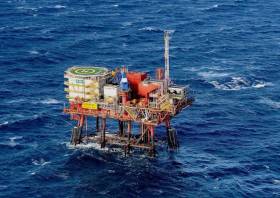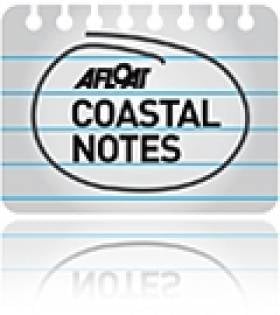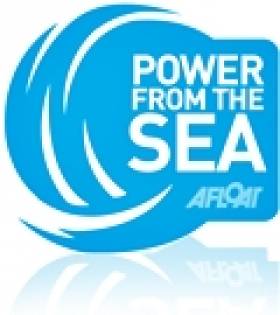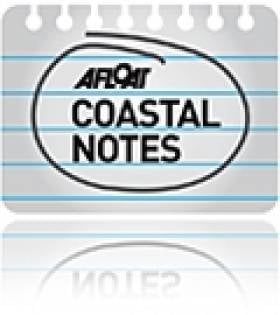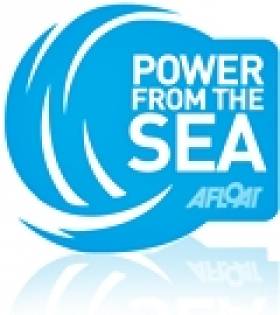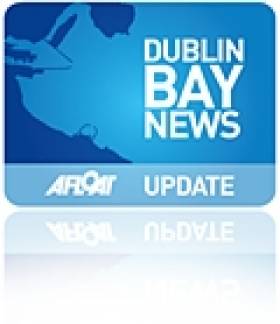Displaying items by tag: Gas
Europa Oil and Gas has almost doubled its estimate for how much gas could be contained at its Inishkea West project, located off the North Mayo coast.
As The Western People reports, Europa Oil & Gas said in a recent stock market update that seismic survey work had indicated the Inishkea West site could potentially hold up to 1.55 trillion cubic feet (TCF) of gas.
This is 92 per cent more than the company’s previous estimate. It also means the site may be potentially larger than the Corrib gas field, which is currently in production and is Ireland’s only indigenous source of natural gas supply.
The company holds one exploration licence off Ireland, which has two principal prospects, the largest being Inishkea West.
The company describes it as “a near field gas prospect in the Slyne Basin”, which it classifies as “lower risk due to its close proximity to the producing Corrib gas field and associated gas processing infrastructure”
In a statement, the company said it would now apply to the Irish government for an extension of its exploration licence at the Inishkea site to complete further survey work and to find a “suitable partner” to commence drilling at the gas field.
The company’s chief executive, Will Holland, said Vermillion (the Corrib operator), said we could use their facilities if we get a find, which means they could produce from Corrib longer, as it would be more economically viable for them,” Mr Holland added.
Europa had previously found a partner in a “national oil company from the Far East” in 2019 to help develop the project, chairman Briain Ó Cathain told The Irish Times earlier this year. However, that group withdrew due to concerns about a decision by Government last year to ban new oil and gas exploration licences.
Read more in The Western People here
Government Agrees Terms For Oil Exploration Ban
Seán Canney, Minister of State for Community Development, Natural Resources and Digital Development, has confirmed the policy principles that will underpin the Taoiseach and Minister Bruton’s announcement to cease new exploration for oil offshore Ireland.
This announcement, in an address to the United Nations Climate Action Summit on 23 September, came on foot of advice received from the Climate Change Advisory Council on what the future of oil and natural gas offshore exploration should be in the context of the recently published Climate Action Plan.
The council noted that the plan envisages a major shift away from oil combustion within heat and transport sectors towards renewables in the coming decade. Therefore, the council advised that the exploration for, and recovery of new offshore oil reserves, is not compatible with a low carbon transition.
The council further advised that the continued exploration for and extraction of new offshore natural gas reserves can be consistent with a low-carbon transition.
Gas is considered to be a transition fuel. This is particularly the case for Ireland, the Government says, where we do not have nuclear power, hydro power at scale or geo-thermal power, which other countries can use to provide back-up for wind and solar power.
The Government asserts that natural gas, as the lowest emitting fossil fuel, will provide the best electricity back up in 2030 when Ireland reaches 70% renewable electricity.
The minister will commission an Energy Sustainability and Security Review which will consider the role of fossil fuels during the transition. It will also consider the role that other technologies can play.
Minister Canney confirmed yesterday (Wednesday 30 October) the following principles in relation to petroleum exploration in the Irish Offshore:
- All future licencing rounds in the currently closed area offshore (Atlantic Margin, 80%) will be for natural gas only and not oil.
- All new licence applications in the currently open area (Celtic Sea, Irish Sea, coastal areas, 20%) will be for natural gas only and not oil, applicable from the day of the Taoiseach and Minister Bruton’s announcement on 23 September.
- All applications and authorisations in place before the announcement was made will not be affected by the decision.
The minister has asked the department to prepare a policy statement which will set out:
- The basis for the underpinning principles in the broader context of the Government’s Climate Action Plan;
- The future development management framework for the exploration and production of gas, as a transition fuel, in Ireland’s offshore; and,
- The role of natural gas in ensuring Ireland’s energy security.
“These principles underpin the Government’s decision for no new oil exploration offshore Ireland. They provide further clarity on the implementation of this decision and are consistent with the Climate Action Plan published by Government on 17 June 2019,” Minister Canney said.
“The Climate Action Plan puts Ireland on a trajectory to meet our 2030 target for carbon emissions, which is consistent with achieving net zero carbon emissions by 2050.”
Minister Bruton added: “Over the next decade, we will rapidly reduce our reliance on fossil fuels as we move to 70% renewables.
“The Government sought advice from the Climate Advisory Council on exploration in the context of this transition and has accepted that advice to ban new oil exploration off Irish coastal waters. Today we agreed the terms of that ban.”
Four People Hurt in Boat Gas Explosion in the UK
Two men, one woman and a teenage boy all suffered burns in the explosion on the boat moored near to the Angel Inn, Severn Side, Stourport-on-Severn at 7.30am on Thursday evening reports YBW.com
The teenager was airlifted to Queen Elizabeth Hospital in Birmingham with major burns to his hands and face. A man in his 60s suffered flash burns to the face, while another man suffered superficial burns to the neck and arms. The woman received burns to her arms.
A spokeswoman said: “When crews arrived they found a boat which had reportedly suffered a gas explosion on board.
“There were four people on board the boat at the time of the explosion.
“A teenage boy, believed to be 17-years-old, suffered the most serious injuries with significant burns to his hands and face.”
Victims were given burns care on scene by ambulance staff before being taken to Worcester Royal Hospital for further treatment.
West Midlands Ambulance Service said two ambulances, a responder paramedic, two senior paramedic officers and the Midlands Air Ambulance from Cosford with trauma doctor on board, attended the scene.
Read more at YBW here
In Ireland, Bord Gáis Networks has provided guidance for keeping aware of the dangers of fumes from gas or fuel-powered generators, heaters or cookers.
Boaters are urged to think of the appliances on their vessels and whether they burn fuel oil, gas, LPG, wood or coal, which all produce carbon monoxide by burning.
Carbon monoxide becomes a hazard when there is not enough air flow to burn the fuel properly - more likely in an enclosed space such as a boat cabin - so ventilation is very important.
Make sure all flues and exhaust outlets are clear and ventilated, and ensure any appliances used are suitable for boats and serviced annually by a qualified agent.
Boat-owners are reminded of the good practice of installing a carbon monoxide alarm, and to know the signs of carbon monoxide poisoning - which include headache and dizziness, leading to loss of judgement, nausea, possible convulsions and elevated heartbeat.
#CoastalNotes - The Environmental Protection Agency (EPA) insists there was "nothing underhand" about its amendments to a 2007 licence for Shell's gas terminal at Bellanaboy in Co Mayo.
The Irish Times has a report on Tuesday's opening remarks of a three-day action at the Commercial Court, where it was alleged that the EPA intended to amend an earlier licence for the facility despite a more recent one being quashed by the High Court over environmental concerns.
As previously reported on Afloat.ie, local man Martin Harrington had claimed the EPA failed to carry out a proper Environmental Impact Assessment of the north-west Mayo region to meet EU requirements.
The outcome of that case last October was hailed as a victory for the long-time campaign against the controversial Corrib Gas Project.
Harrington's latest action is a judicial review challenge aimed at quashing the amendments to the 2007 licence. The Irish Times has more on the story HERE.
#powerfromthesea – Speaking in London at a debate hosted by the London Irish Business Society, Minister of State, Fergus O'Dowd T.D., said "Offshore Ireland has a significant potential for oil and gas finds. Recent discoveries and on-going petroleum research indicate a positive resource potential, but how this unfolds will vary depending on the level of exploration activity and its success."
The Minister went on to say "It is only through active exploration that the potential of the Irish offshore will be proven. Ireland's offshore area is vast, – 700,000 sq km approximately, but there has been relatively few commercial successes in over forty years exploration. We need increased levels of exploration activity, in particular exploration drilling levels if true potential is to be proven".
The Minister confirmed the Government intended to formally commence the next licensing round in the coming months and pointed to a number of initiatives by the Government aimed at improving the perspective on prospectivity offshore Ireland by enhancing data availability and moving to de-risk exploration effort. In particular, he pointed to the commencement in June 2013 by far the largest regional 2D seismic survey ever to be acquired in the Irish offshore. He also highlighted the research that he and Minister Rabbitte had commenced to review the fitness for purpose of Ireland's Fiscal Terms and his expectation that the outcome of that review would be available to inform the next licensing round.
Minister O'Dowd underlined the new interest in Ireland, pointing to the significant new entrants to the Irish offshore following the 2011 round and his determination to build on this momentum. The Minister concluded by stressing "Ireland is open for Business, there are good opportunities for accessing exploration acreage and Ireland has modern, open, transparent and effective regulatory processes."
Fastnet Awarded 'East Mizzen' Option In Celtic Sea
#Oil&Gas - Fastnet Oil & Gas has been awarded a new licensing option in the North Celtic Sea off the Cork coast.
The East Mizzen option covers a number of blocks in the Mizzen Basin, plus the western end of the North Celtic Sea Option, covering a tittle area of 1,155 sq km and contiguous with the previously awarded Mizzen option.
The 18-month option requires the reprocessing of a minimum of 400km of existing 2D seismic data, which has indicated the presence of light oil in some areas.
Fastnet managing director Paul Griffiths commented: "We are delighted to have added to our inventory of material prospective structures in the Mizzen area ... This has allowed us to capitalise on the interest being shown by the industry in our farm-out process in this particularly under-explored, yet highly prospective, basin.
"It has also allowed us to maximise the value of our on-going 3D seismic acquisition by creating 'running room' for potential farminees that have identified the Mizzen Basin as a new emerging shallow water exploration province offshore Ireland."
Earlier this year, as reported on Afloat.ie, Fastnet executed its exclusive option agreement to farm into its nearby Deep Kinsale Prospect, with plans to drill the prospect in 2014.
Oil and Gas Firm Issued Licence to Explore Off Dalkey Island
#POWER FROM THE SEA - Irish oil and gas firm Providence Resources has been awarded a licence to explore near Dalkey Island, the Irish Independent reports.
The standard licence issued by the Department of Communications, Energy and Natural Resources lasts for up to six years, split into two three-year phases.
Providence hopes to drill at least one well during the initial phase in the Kish Bank Basin, where previous exploration drilling confirmed the presence of oil suitable for petroleum production.
The group is also applying for a foreshore licence for the purpose of well site surveys and drilling operations.
As previously reported on Afloat.ie, Providence Resources is one of the 12 companies that were awarded 13 Licensing Options between them in the 2011 Atlantic Margin Licensing Round.
The Irish Independent has more on the story HERE.
Dublin Bay Oil, Gas, Coal...and Waste-Water!
The work is part of a Dublin City Council project to evaluate an extension at the Ringsend plant where treated water will be released into the bay. The council are conducting detailed feasibility studies which will be examined for an Environmental Impact Assessment.
To date the project has involved two other rigs, the Aran 250 and the larger Excalibur which remains in the bay. The barges will be towed to 20 pre-determined bore-hole locations in the bay where the jack-up rig barges operate 'legs' to sit on the seabed which enables a steady working platform. The rigs are operating on a continuous basis in an area covering most of Dublin Bay and close to the Burford Bank on the eastern fringes.
In addition a buoy will be positioned 300-metres of the barge during drill operations, which is expected to take approximately one week for each drill. For information on the location of the bore-holes, they can viewed from the Dublin Port website by clicking HERE The project is expected to be completed in late Spring.
Several support craft are engaged in the project that recently included the Seabed Worker, a 3,923 gross tonnes Norwegian anchor-handling tug supply vessel (AHTS) the tugs Multratug 7, MTS Valiant and Trojan and the RIB-craft sisters, Brian Boru and James Joyce which are on standby duties. Like the Trojan, the 12-seater RIBS are based at the Poolbeg Yacht Club Marina where in the tourist season the craft provide excursions in Dublin Bay for Sea Safari Tours. In October the project also required the services of the yellow-hulled catamaran, Xplorer to carry out a bathymetric survey of Dublin Bay. The larger tugs and rigs are based opposite in Alexandra Basin / Ocean Pier.
The largest drill-rig working to date on the project, the Excalibur arrived under the tow of the Multratug 7 on a misty morning on Christmas Day. Due to the weather conditions the red-hulled craft slipped quietly into the port. Several days later the imposing looking craft re-emerged with its six-towering jack-up 'sea-legs' that jutted skywards into an otherwise horizontal expanse of Dublin Bay.
The sight of the rig has presented many onlookers to mistakenly believe the drilling was for oil!...Not so but the assumption is not surprising given the reports last year of an oil-field discovery named the Dalkey Island Prospect. The name for the oil-field was referred to Dalkey, as the coastal suburb on the southern shores is the nearest landfall to the exploratory well sites at the Kish Bank Basin.
In fact this kind of exploratory activity was again to confuse residents throughout the bay when the drill-ship, Fugro Synergy was offshore at the Kish Bank between December 2009 and early Spring of 2010. Though on this occasion the search was not for oil but coal!
During this period the 5,200 tonnes vessel equipped with a drill-tower, seemed to be a near permanent feature on the horizon. A series of drill-wells up to 3,500-metres were conducted when the 2009 built ship was contracted to Irish based VP Power Ltd, to determine the commercial viability of extracting coal from the sea for generating electricity. The Underground Coal Gasification (UCG) project is a process where coal is heated in underwater rock reservoirs to extract gas, essentially converting gas-from-coal energy. Otherwise this method is commonly referred to as a 'clean' technology.
In addition to last year's search for deposits of large coal seams under the seabed, there was reports of a significant natural resource in the form of oil!... when several exploratory blocks again in the Kish Bank Basin were surveyed. The company behind this venture, Provident Resources, another Irish based exploration company, conducted initial oil surveys using air-born craft and as such no actual drill-based ships or rigs were used. Though should any oil flow, such an operation would be required.
Incidentally the Excalibur is designed also to perform offshore wind turbine installation work and is equipped with a 250-ton crane to hoist the wind-farm components. The vessel is operated by Fugro Seacore, a subsidiary of the Dutch parent company, Fugro, which also managed the drill-ship Fugro Synergy.



























